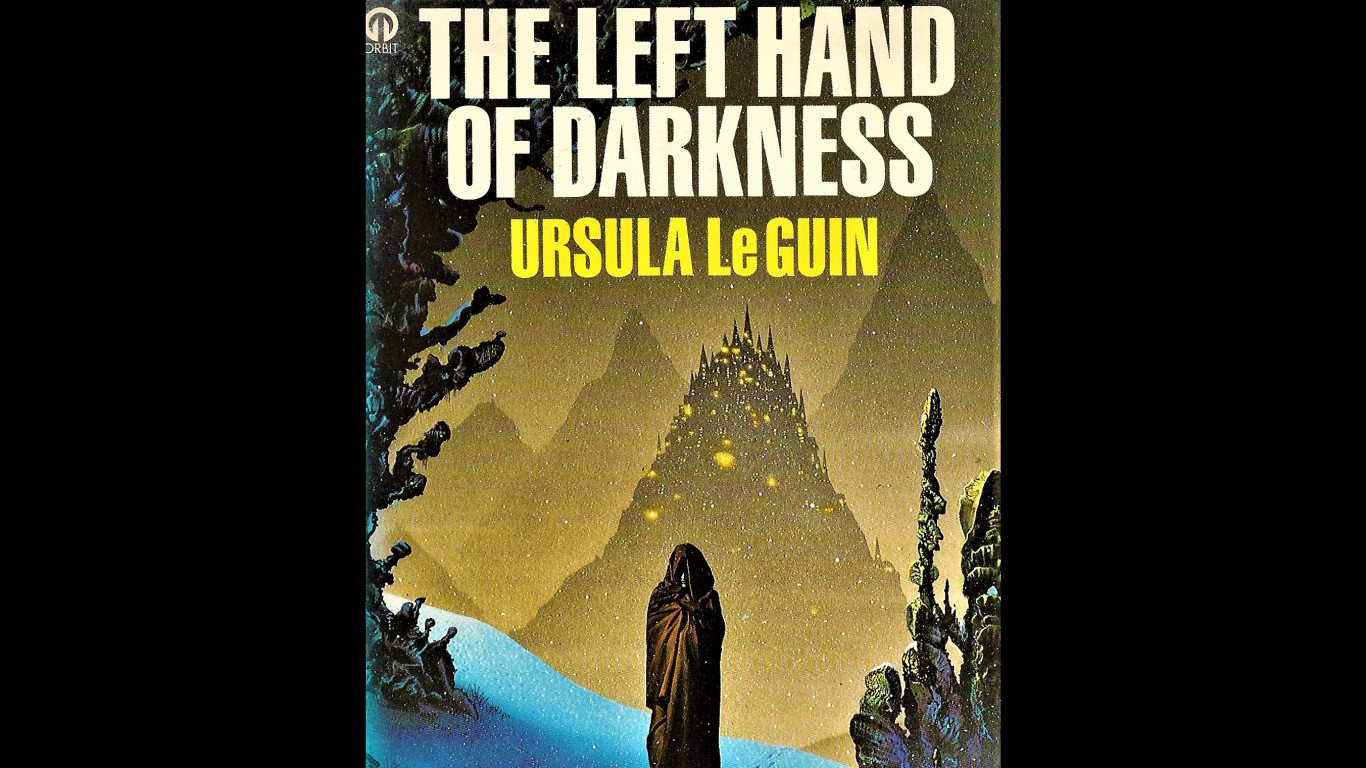
Considering the rise in global income inequality, the burgeoning climate crisis, and the increasingly divisive socio-political climate, it can feel like the known world is headed down a dark and dystopian path. (These are the countries where climate change is most evident.)
In these times, when cynicism is all too prevalent, it may be wise to consider what the historian and philosopher Howard Zinn had to say on being hopeful in bad times: “What we choose to emphasize in this complex history will determine our lives. If we see only the worst, it destroys our capacity to do something.”
This is where the power of utopian literature shines. Dreaming into possible futures where humankind has overcome the challenges that currently face us may be a crucial part of achieving even miniscule positive change. Utopian stories can cultivate the courage and hope that motivate individuals to work toward building a better world for ourselves and our descendants.
To determine 30 essential utopian novels of the last 400 years, 24/7 Tempo consulted numerous literary websites including GoodReads and the New York Times Book Review, as well as Britannica and other sources. We included a diverse range of authors from the 17th century to the present day, capturing a spread of utopian visions that encompass numerous ideologies including socialism, feminism, anti-racism, behaviorism, and environmentalism.
Although some novels and writings, particularly the earlier works, envision utopian societies where men still rule and women are property, or where class and racial disparities still exist, other works imagine post-gender and classless societies. As these are largely projections of possible futures, most fall into the realm of speculative or science fiction – though a few have predicted current technologies. (Here are the best movies about the future.)
Click here to see 30 utopian novels to read in our dystopian world

Island (1962)
> Author: Aldous Huxley
A counterpoint to his preeminent dystopian novel “Brave New World,” Aldous Huxley’s last novel, “Island,” follows a news reporter who intentionally shipwrecks himself on a flourishing utopian island with the intention of duping the inhabitants into selling rights to an untapped natural resource. Despite his ulterior motives, he is irrevocably changed by the values and spiritual actualization of the people of Pala.
[in-text-ad]

The Dispossessed (1974)
> Author: Ursula K. Le Guin
Set in the same universe as Le Guin’s Hainish Cycle novels, “The Dispossessed” follows a physicist from an anarcho-syndicalist utopian world where personal possessions are nonexistent, as he attempts to bridge the political divide between his planet and one that looks very similar to our own. “The Dispossessed” won the Hugo, Nebula, and Locus awards for Best Novel in 1975.

Ecotopia (1975)
> Author: Ernest Callenbach
An iconic utopian novel of the green movement, “Ecotopia” details the trials of an emerging ecostate that has seceded from the U.S. in an attempt to live in balance with the natural world. Feminism, non-monogamy, free mass transportation, a 20-hour work week, employee ownership of companies, and renewable energy are among the cultural values accepted or implemented in the isolated society.

Beatrice the Sixteenth (1909)
> Author: Irene Clyde
Written by English lawyer and transgender pioneer Thomas Baty under the pseudonym Irene Clyde, “Beatrice the Sixteenth” is set in a postgender and postsexual society in which everyone has vaguely female characteristics. Life partnerships are based on companionship, procreation is impossible, and everyone is vegetarian. Clyde’s novel is considered a radical early work of transgender literature.
[in-text-ad-2]

Men Like Gods (1923)
> Author: H.G. Wells
An enthusiastic projection of where society could be in 3,000 years, “Men Like Gods” imagines a world free from government, war, crime, poverty, and religion, where people have opportunities to spend time on creative pursuits. In this utopia, telepathy is the norm, there is no money, and there are multiple known universes. But of course a few time travelers are planning a takeover.

Light Ahead for the Negro (1904)
> Author: Edward A. Johnson
Written by an author and lawyer who was born into slavery and would go on to become the first Black member of the New York state legislature, “Light Ahead for the Negro” imagines an American South in 2006 that is free of racial descrimination. In Johnson’s vision, unions are open to Black members, former cotton plantations have been broken up and sold at low prices to Black farmers, and Black citizens freely choose to remain socially segregated.
[in-text-ad]

Walden Two (1982)
> Author: B.F. Skinner
Written by a behavioral psychologist, “Walden Two” follows a professor who visits a thriving intentional community designed around operant conditioning. In this utopia, members agree to a prescribed but mutable set of rules, family units are nonexistent, schooling focuses on each individual’s niche interests, the work week is only four hours, and a rotating group of “planners” organize the growth and evolution of the community’s code.

Through the Valley of the Nest of Spiders (2012)
> Author: Samuel R. Delaney
“Through the Valley of the Nest of Spiders” follows 75 years in the lives of a gay working class interracial couple, including their time spent at a utopian community for gay black men that was started by a billionaire philanthropist. Delaney’s exploration of free love in this subcultural utopia runs headlong into countless taboos while celebrating companionship and love between men.
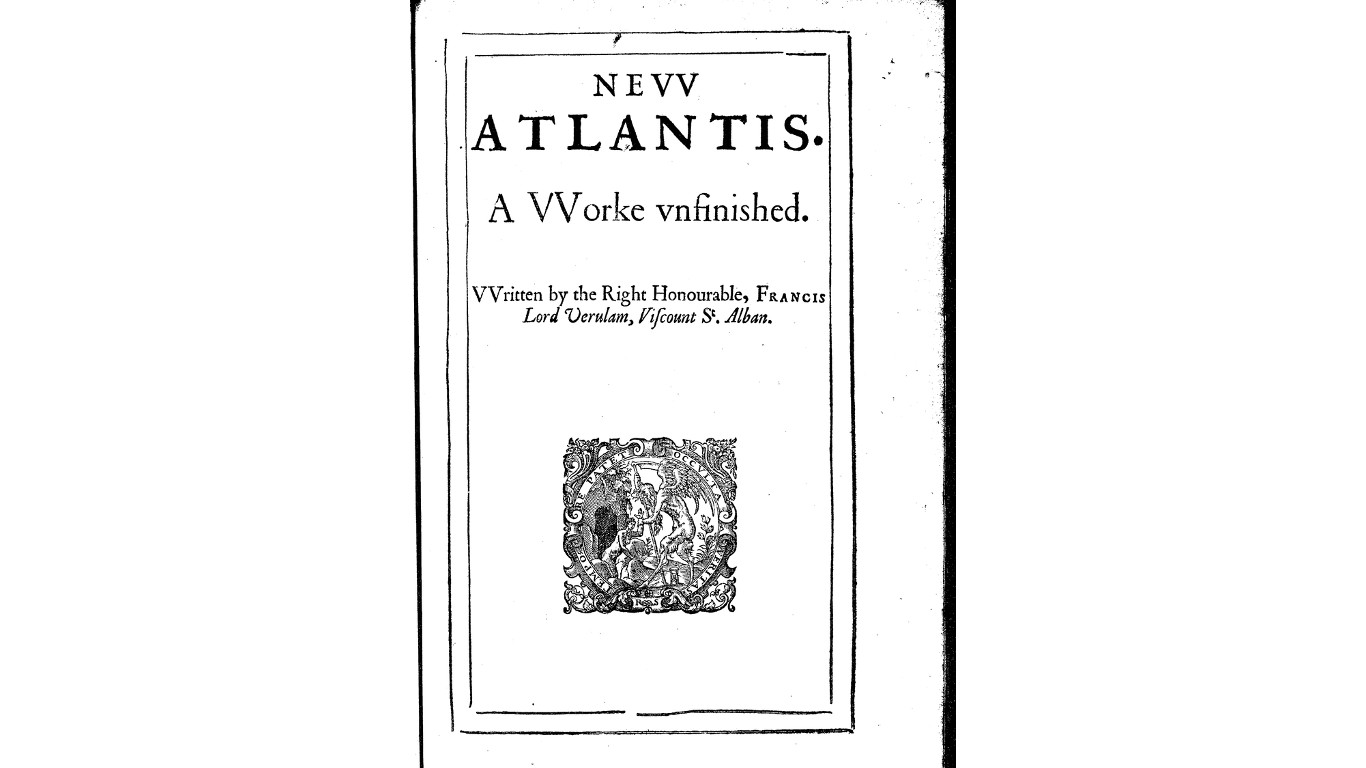
New Atlantis (1627)
> Author: Francis Bacon
This incomplete and posthumously published novel by philosopher and statesman Francis Bacon follows a crew of sailors who encounter an island society where enlightenment, peace, generosity, and a desire for the common good guide the inhabitants, while a state-sponsored college of sciences encourages discovery and the search for knowledge.
[in-text-ad-2]

For Us, the Living (1938)
> Author: Robert A. Heinlein
Written in 1938, “For Us, the Living” was Robert Heinlein’s first novel, yet it remained unpublished until 2003, when a biographer tracked down the lost manuscript. The book follows a man who mysteriously ends up in the year 2086 to find a society of equality, where nudity is no longer taboo; people have universal education, short working hours (if they choose to work), and high wages; and open sexualilty without jealousy is the norm.

Herland (1915)
> Author: Charlotte Perkins Gilman
Released in serial format in 1915, this feminist utopian novel wasn’t published as a book until 1979. “Herland” follows a group of men who stumble upon a remote community of women who procreate asexually and enjoy a society free of war, gender roles, and power struggles. Instead, empathy, understanding, and patience are marked attributes of the citizens, and teachers are the most revered of all people.
[in-text-ad]

Fire on the Mountain (1988)
> Author: Terry Bisson
This alternate history novel imagines a timeline in which the abolitionist John Brown had succeeded in pulling off his 1859 slave rebellion – this time, with the help of maverick organizer Harriet Tubman. The revolution leads to emancipation and a new Black republic, headed by Tubman and Frederick Douglass, that eventually incites a socialist revolution, leading to worldwide prosperity and happiness.

Lost Horizon (1933)
> Author: James Hilton
This novel about a utopian lamasery in the Tibetan mountains was eventually made into a film, and is the origin of the idea of Shangri-La, a remote earthly paradise. In the novel, the residents of Shangri-La age so slowly that they live hundreds of years. While their home is one of striking natural beauty, the residents are not deprived of modern technology and information.

Sultana’s Dream (1905)
> Author: Begum Rokeya
Written in English by Bengali-Muslim feminist Begum Rokeya, “Sultana’s Dream” imagines a society in which the tables are turned on the traditional Muslim practice of purdah (female seclusion). In her feminist utopia, Ladyland, women run a crime-free society with a two-hour workweek, and males are kept in seclusion. Technological advancements featured in the novel include flying cars, weather control, solar power, and automated farming.
[in-text-ad-2]
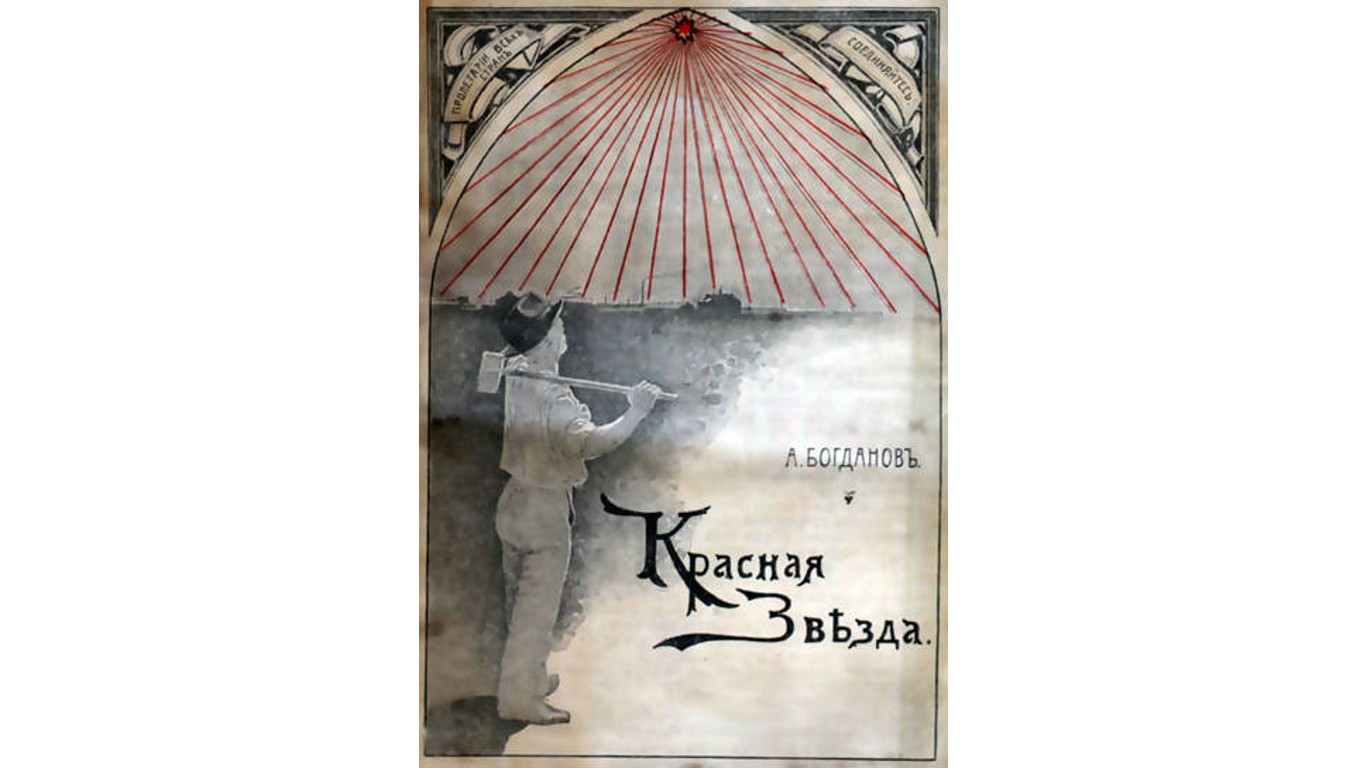
Red Star (1908)
> Author: Alexander Bogdanov
Written by a physician and Bolshevik revolutionary, “Red Star” imagines a communist utopia on Mars that features universal equality, the absence of gender, advanced science and medicine, and legally assisted suicide. Citizens have the freedom to choose their occupation and workload, as well as who and how many people they wish to love.
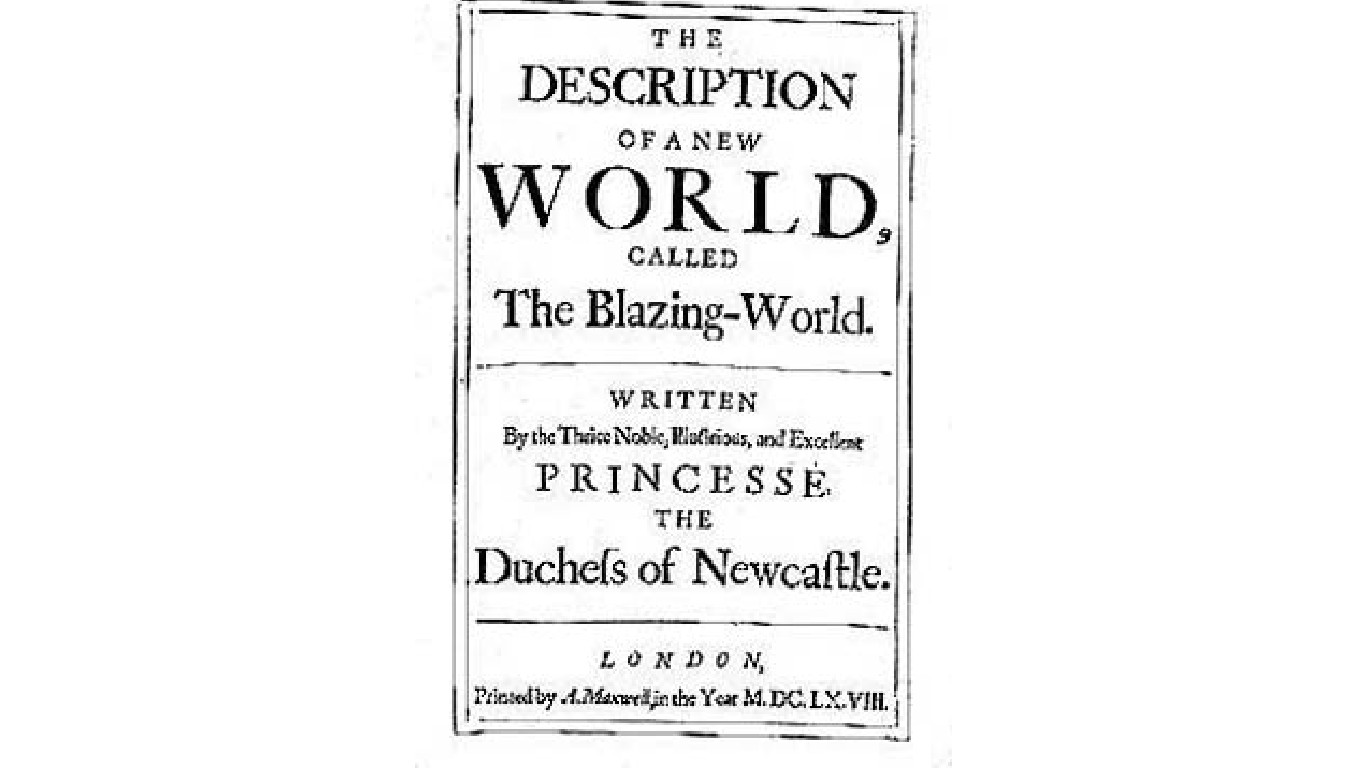
The Blazing World (1666)
> Author: Margaret Cavendish
Written by English philosopher Margaret Cavendish, “The Blazing World” follows a woman who enters a utopian kingdom that includes many species of talking animals, becoming its new Empress and later invading her own homeland and adding it to the utopian empire. This early work of speculative fiction challenged gender and power norms in the male-dominated philosophical discourses of the time.
[in-text-ad]

bolo’bolo (1983)
> Author: P.M. (Hans Widmer)
Written by Swiss author Hans Widmer under the pseudonym P.M., “bolo’bolo” is not a novel, but is nevertheless essential reading in the utopian genre, as it outlines in ambitious detail what a future anarchist utopia might look like. Widmer invents his own language in building this world and provides an outline for social transformation in which personal possessions are limited, regional cultures remain intact, and individuals may opt out of community.

The Culture Series (1987)
> Author: Iain M. Banks
This towering sci-fi series by Scottish author Iain M. Banks includes 10 novels released between 1987 and 2012 that are centered around the Culture, an interstellar, post-scarcity utopian civilization of humanoid aliens and artificial intelligence, as well as various civilizations that the Culture is at odds with. Within this utopia, citizens live for centuries and focus mainly on joy, wonder, and self-actualization.

News from Nowhere (1890)
> Author: William Morris
From socialist activist William Morris comes a hopeful and visionary picture of a future society without the need for money, private property, authority, or prisons – one in which the means of production are collectively held. Members of the agrarian society described in “News from Nowhere” find creative pleasure and meaning in their work, and therefore do not need to be coerced into production.
[in-text-ad-2]

The Kin of Ata Are Waiting for You (1971)
> Author: Dorothy Bryant
After a ruthless man kills his lover in a drug-fueled rage, he crashes his car and is transported to a strange, multiracial utopian land called Ata that is free of gender roles and prejudice. In Ata, dreams are the guiding forces of waking life, dictating where people work and what yearly rituals are performed. The man comes to realize that he is in a higher plane of existence that influences the real world, and that he must learn the ways of these people if he is to make it back.

Islandia (1942)
> Author: Austin Tappan Wright
Written by legal scholar Austin Tappan Wright and published posthumously, “Islandia” features a remote island nation whose populace is always limited to 100, where visitors come from all over the world to experience a sort of rehabilitation, participating in useful agrarian work, in harmony with the natural world. The community has limited technology but an advanced understanding of human psychology and emotions. The novel has been compared to Tolkien’s “Lord of the Rings” in the breadth of the imaginary world’s history, language, and culture.
[in-text-ad]

The City of the Sun (1623)
> Author: Tomasso Campanella
Written in Italian in 1602 by Calabrian monk Tomasso Campanella, “The City of the Sun” envisions a theocratic society where wise and benevolent leadership govern with the principles of equality and shared interest in the common good. In this community, manual laborers, from peasants to artisans, are full citizens, and all property (which includes women and children, in this case) is owned collectively. There are no servants, and because everyone works, the work week has been reduced to four hours.

Woman on the Edge of Time (1976)
> Author: Marge Piercy
Set in 1970s Spanish Harlem, “Woman on the Edge of Time” follows a Mexican American woman (Connie) who has lost her child to the state and been imprisoned in a mental institution. While there, she is visited by an androgynous character from an anarchistic future, who tells of a world in which poverty, racism, homophobia, environmental destruction, injustice, and imperialism have been eradicated. These communications ultimately inspire Connie to take action to determine her own fate, and the fate of the world.

Andromeda (1957)
> Author: Ivan Yefremov
Full of action and space travel, this novel by Soviet paleontologist and author Ivan Yefremov details a space age communist future in which Earth and several other inhabited planets form a friendly confederation called the Great Circle. Society is free from the toils of hard labor, poverty, and greed, and humans have become fully emotionally and intellectually developed beings who have turned their focus to a cosmic destiny.
[in-text-ad-2]

Trouble on Triton (1976)
> Author: Samuel R. Delaney
Taking place in the future of our solar system, this novel imagines a free, utopian society on the planet of Triton, where the government has no power to legislate behavior or morality, and people can even choose to live in lawless areas. Citizens can use technology to change their gender and sexual orientation as well as their physical and psychic characteristics. The story follows Bron Helstrom, a self-absorbed man from another planet who can’t seem to enjoy the pleasures that Triton has to offer, and decides to become a woman.
The Left Hand of Darkness (1969)
> Author: Ursula K. Le Guin
Set in the universe of Ursula Le Guin’s Hainish Cycle, this novel presents a peaceful, androgynous society of ambisexual people on the planet of Gethen. When an ambassador from the earth-like planet of Terra arrives in Gethen to persuade its nations to join an interplanetary confederation, his failure to grasp their cultural norms hinders his mission.
[in-text-ad]

The Deep (2019)
> Author: Rivers Solomon with Daveed Diggs, William Hutson, and Jonathan Snipes
This novella, inspired by a song of the same name by Los Angeles hip hop group clipping., imagines a secret underwater utopia inhabited by the wajinru, descendants of pregnant African captives who were thrown overboard along the Middle Passage. When they discover that an energy company wants to drill beneath them to harvest fossil fuels, they must face their collective memories in order to survive.

The Fifth Sacred Thing (1993)
> Author: Starhawk
Set in a post-apocalyptic 2048, this novel imagines a pagan ecotopia in northern California ruled by a council of women elders, where hunger, waste, and homelessness are nonexistent. When the threat of invasion by a nearby fundamentalist Christian nation becomes inevitable, the citizens of this peaceful utopia may have a way to defend their community without sacrificing their ideals.

Pacific Edge (1990)
> Author: Kim Stanley Robinson
The final book in Kim Stanley Robinson’s Three Californias Trilogy, which imagines multiple alternate futures for Orange County, California, “Pacific Edge” can be read as a stand-alone novel. It details a possible transformation from the present to an ecologically sustainable future. This idyllic world is not without its own conflicts, of course, that arise in the form of greed and exploitation that threaten the new way of life.
[in-text-ad-2]
Travel Cards Are Getting Too Good To Ignore (sponsored)
Credit card companies are pulling out all the stops, with the issuers are offering insane travel rewards and perks.
We’re talking huge sign-up bonuses, points on every purchase, and benefits like lounge access, travel credits, and free hotel nights. For travelers, these rewards can add up to thousands of dollars in flights, upgrades, and luxury experiences every year.
It’s like getting paid to travel — and it’s available to qualified borrowers who know where to look.
We’ve rounded up some of the best travel credit cards on the market. Click here to see the list. Don’t miss these offers — they won’t be this good forever.
Thank you for reading! Have some feedback for us?
Contact the 24/7 Wall St. editorial team.
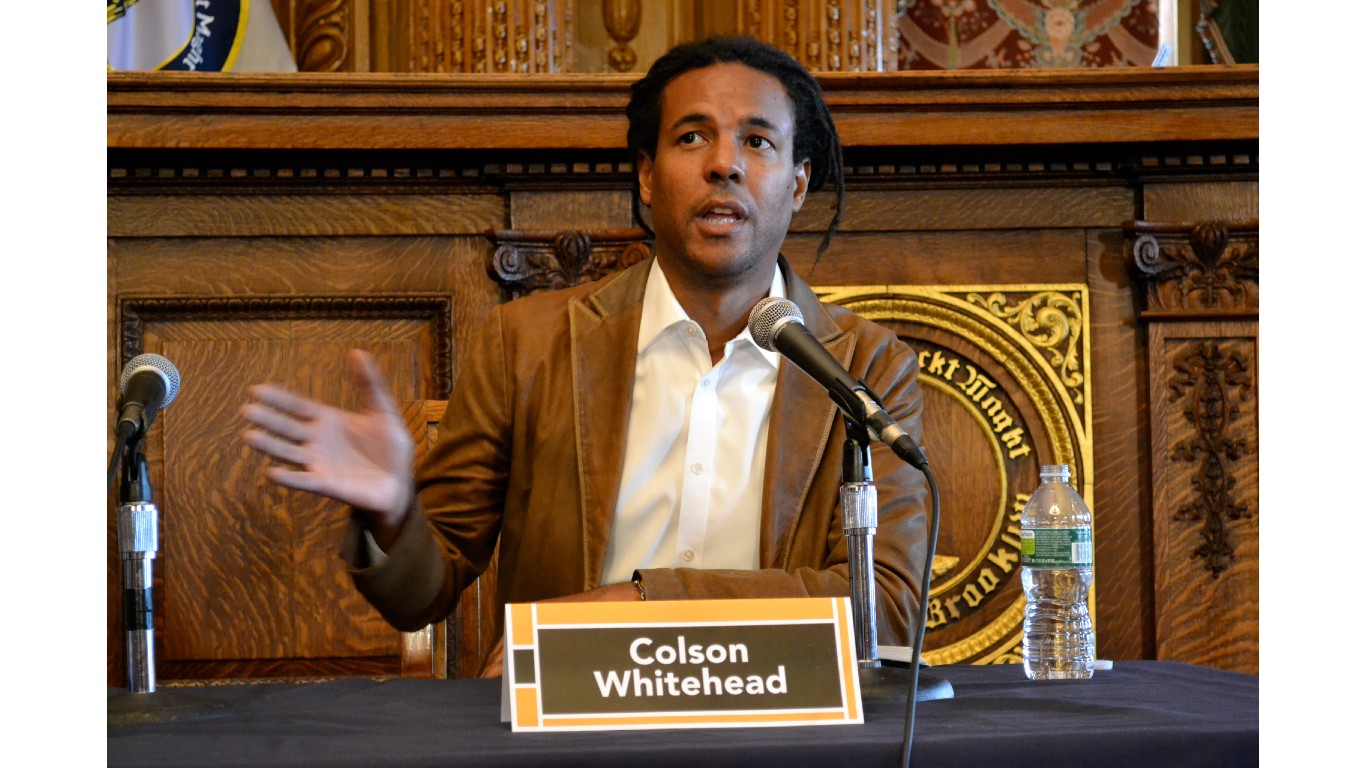 24/7 Wall St.
24/7 Wall St.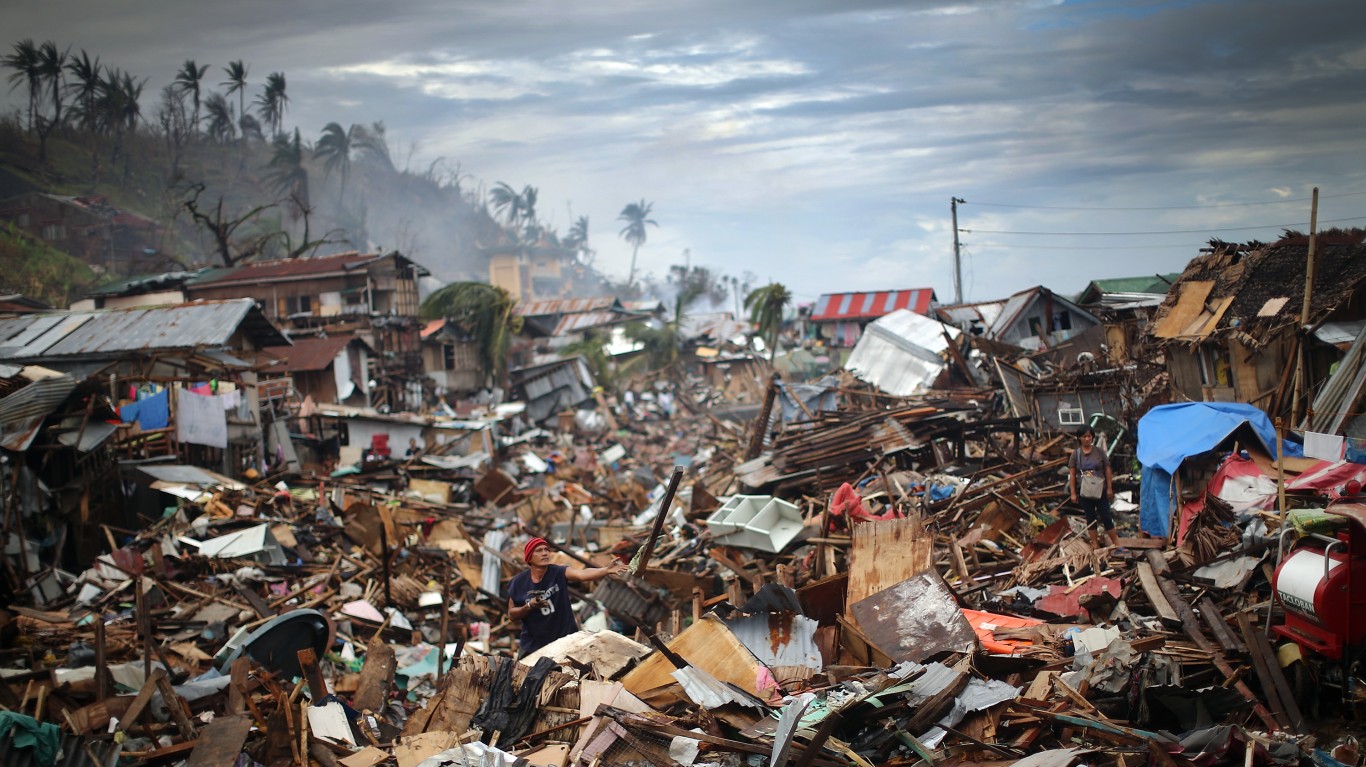 24/7 Wall St.
24/7 Wall St.